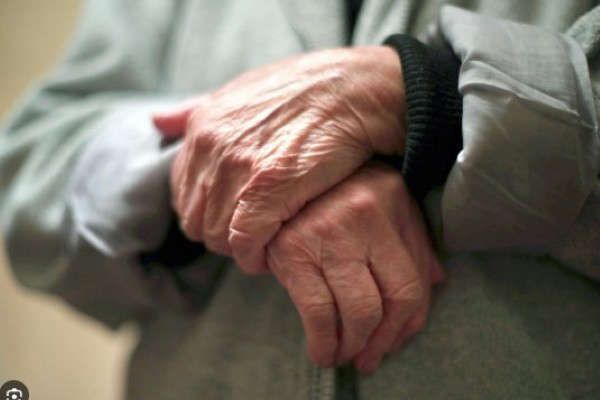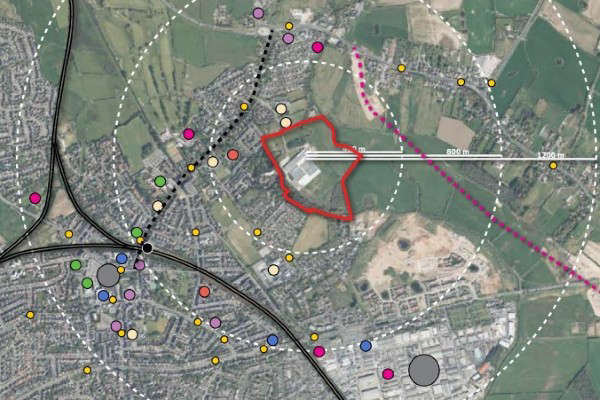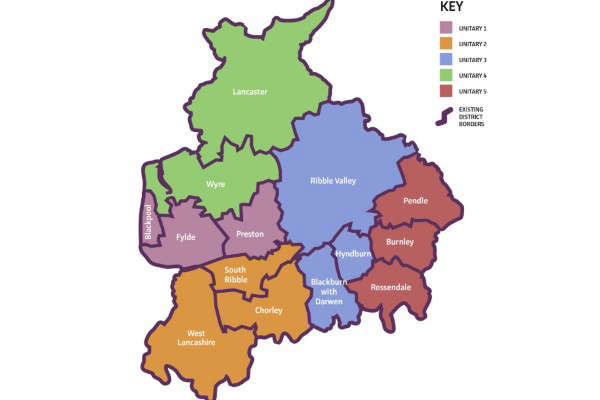
Blackpool Council has been rated ‘inadequate’ over its responsibilities to ensure the town’s most vulnerable people have access to adult social care and support.
The Care Quality Commission (CQC), whose inspectors compiled the report, looked at nine areas of the council’s work in adult social care and handed the authority low scores in most areas.
As a result of the low overall rating, the CQC has highlighted shortcomings to the Government, flagging up which areas need to be improved and expecting this to be done quickly.
Blackpool Council says that while it was aware some improvements were needed and takes the report “exceptionally seriously”, there was shock at the inadequate rating and disappointment that the report did not give greater acknowledgement to what the council was doing well.
The council says the inspectors didn’t find any evidence of adults being unsafe – and did recognise that staff were passionate about their work and proud to work for the council.
The report, published today, comes as part of the CQC’s new duty under the Care Act (2014) to assess how local authorities work with their communities and partners to meet their responsibilities.
This includes promoting the wellbeing and independence of working age disabled adults, older people, and their unpaid carers to reduce their need for formal support where appropriate. Where support is needed it should provide people with choice and control of how their care needs are met.
CQC looked at nine areas spread across four themes to assess how well the authority is meeting their responsibilities, giving each area a score out of four, with ‘one’ showing significant shortfalls, and ‘four’ showing an exceptional standard.
How the authority scored
The way it works with people:
1.Assessing people’s needs (score: 1)
2.Supporting people to lead healthier lives (score: 1)
3.Equity in experience and outcomes (score: 1)
Providing support:
4.Care provision, integration and continuity of care (score: 2)
5.Partnership and communities (score: 2 )
6. safe pathways, systems and transitions (score: 2)
How the local authority ensures safety in the system:
7. safeguarding (score: 1 )
8. governance, management and sustainability (score: 1 )
Leadership:
9. learning, improvement and innovation (score: )1
As a result of te council’s inadequate rating, under Section 50(2) of the Health and Social Care Act 2008, the CQC has sent a notification letter to the Secretary of State for Health and Social Care outlining the areas where improvements are needed.
What CQC says
James Bullion, CQC’s chief inspector of adult social care and integrated care, said: “When we carried out our assessment of Blackpool Council, we found stronger leadership was needed to drive rapid improvements in how people were able to access adult social care services across the borough.
“Strong leadership is especially important given the authority needs to make these improvements against a challenging backdrop. Blackpool is the most deprived local authority in England, and five areas in the borough have NHS priority ward status due to the level of deprivation and health inequalities.
“Leaders weren’t working well with partner organisations to provide person centred care and tackle these inequalities. This meant the authority wasn’t able to ensure people had access to the care or support they needed, which was having a negative impact on their health and wellbeing.
“There was a culture where the authority made decisions for people regarding what care and support they needed, rather than allowing them to make their own decisions. This posed a risk to people’s wellbeing and in some cases didn’t respect their human rights.
“We found people living in Blackpool weren’t being treated fairly. For example, people who identified within LGBTQIA+ received a different standard of care and support compared to people with less bespoke needs. The authority wasn’t engaging with these groups to understand the risks and issues which impacted their daily lives, to provide the support they needed.
“Unpaid carers gave us mixed feedback about their experiences. Positively, one person told us they felt isolated before using the carers service. However, others spoke negatively about the lack of effective partnership working between adult social care staff and drug and alcohol services, to help support their loved ones with addiction issues.
“Across the authority, we also heard mixed feedback on people’s experiences about the uptake of direct payments. Some unpaid carers told us they’d heard of them but felt they didn’t qualify or wouldn’t be able to manage them. However, others received them and spoke positively about the invaluable support they gave them. Data showed the percentage of people receiving direct payments was worse than the national average at 17.70% compared to 25.48% for England.
“However, staff and senior leaders consistently told us they were proud to work for the authority and were passionate about providing care and support to the people of Blackpool. Now, this passion needs to be paired with action and accountability to ensure meaningful change happens quickly. Without clear direction and effective collaboration, the authority risks continuing to fall short for the people who rely on its care and support the most.
“We have told leaders at Blackpool Council where they need to improve, and we expect to see rapid and widespread improvements when we return.”
The assessment team found:
- Blackpool has severe social inequalities and health disparities, ranking worst in England for life expectancy, causes of death, homelessness, and employment rates. Residents have significantly shorter life expectancy and healthy life expectancy compared to national averages, with particularly high rates of mental health problems, drug and alcohol use, and suicide. The authority had fragmented plans to tackle these issues and need a more strategic joined up approach.
- Leaders needed to put more focus on programmes supporting people to lead healthier lives, in turn reducing the need for formal support and so people have better outcomes.
- The authority didn’t always provide accessible information to meet people’s individual needs. For example, someone had significant reading difficulties and preferred to have information shared with them verbally rather than in writing, but they continued to receive letters in the post rather than having telephone calls as agreed. Another person with a learning disability and some sight loss used technology to communicate, however this wasn’t included in their support plan, so staff weren’t aware of this and didn’t respect their wishes.
- The authority didn’t always take timely action to support people at risk of needing more formal support without it. For example, people and unpaid carers didn’t have timely access to equipment or reablement at home to maximise their independence.
- The authority needed to do more to understand the impact that waiting for assessments had on people, particularly those with learning disabilities, mental health needs and autistic people to help with their wellbeing.
- The local authority needs to do more to maximise people’s independence for longer. There has been an increase in permanent admissions to care homes, despite people saying they would prefer to remain at home with the right support. National data supported this showing 77.78% of people aged 65 and over were still at home 91 days after discharge from hospital into reablement or rehabilitation offers. This was worse than the England average of 83.70%.
What Blackpool Council says
Blackpool Council says that work to address the findings and conduct rapid improvements have already started. An improvement plan was being created, scrutinised by an independent improvement board which is meeting already.
Cllr Neal Brookes, Deputy Leader of Blackpool Council and Cabinet Member for Adult Social Care, admitted he was shocked at the ‘inaqequate’ rating.
He said: “This report is a difficult read and we take the findings exceptionally seriously.
“Adults in Blackpool deserve the highest quality of care when they need it and I am committed to putting the processes in place to make sure that happens.
“There are areas of good work highlighted in the report, including the care and passion of our staff. In fact Blackpool Council performs well and above average in most of the government’s surveys looking at adult social care performance, including people’s satisfaction of care.
“But there are also areas where we need to improve and do better. We won’t shy away from the work we need to do. Our independently chaired improvement board is already meeting and we will be assessing each risk that has been raised by the CQC and addressing it.”

 Teacher from Blackpool swapping classrooms for oceans to embark on epic round the world yacht race this weekend
Teacher from Blackpool swapping classrooms for oceans to embark on epic round the world yacht race this weekend
 BLACKPOOL LAUNCHES CHAMPION OF CHAMPIONS SERIES FOR WORLD FIREWORKS CHAMPIONSHIP BLACKPOOL
BLACKPOOL LAUNCHES CHAMPION OF CHAMPIONS SERIES FOR WORLD FIREWORKS CHAMPIONSHIP BLACKPOOL
 New plans lodged for 200-plus homes in Poulton
New plans lodged for 200-plus homes in Poulton
 Tribute to much-loved midwife by turning Tower pink
Tribute to much-loved midwife by turning Tower pink
 Shake-up survey launch and explainer
Shake-up survey launch and explainer
 Decision made on plans for new shop front for former sandwich bar
Decision made on plans for new shop front for former sandwich bar


